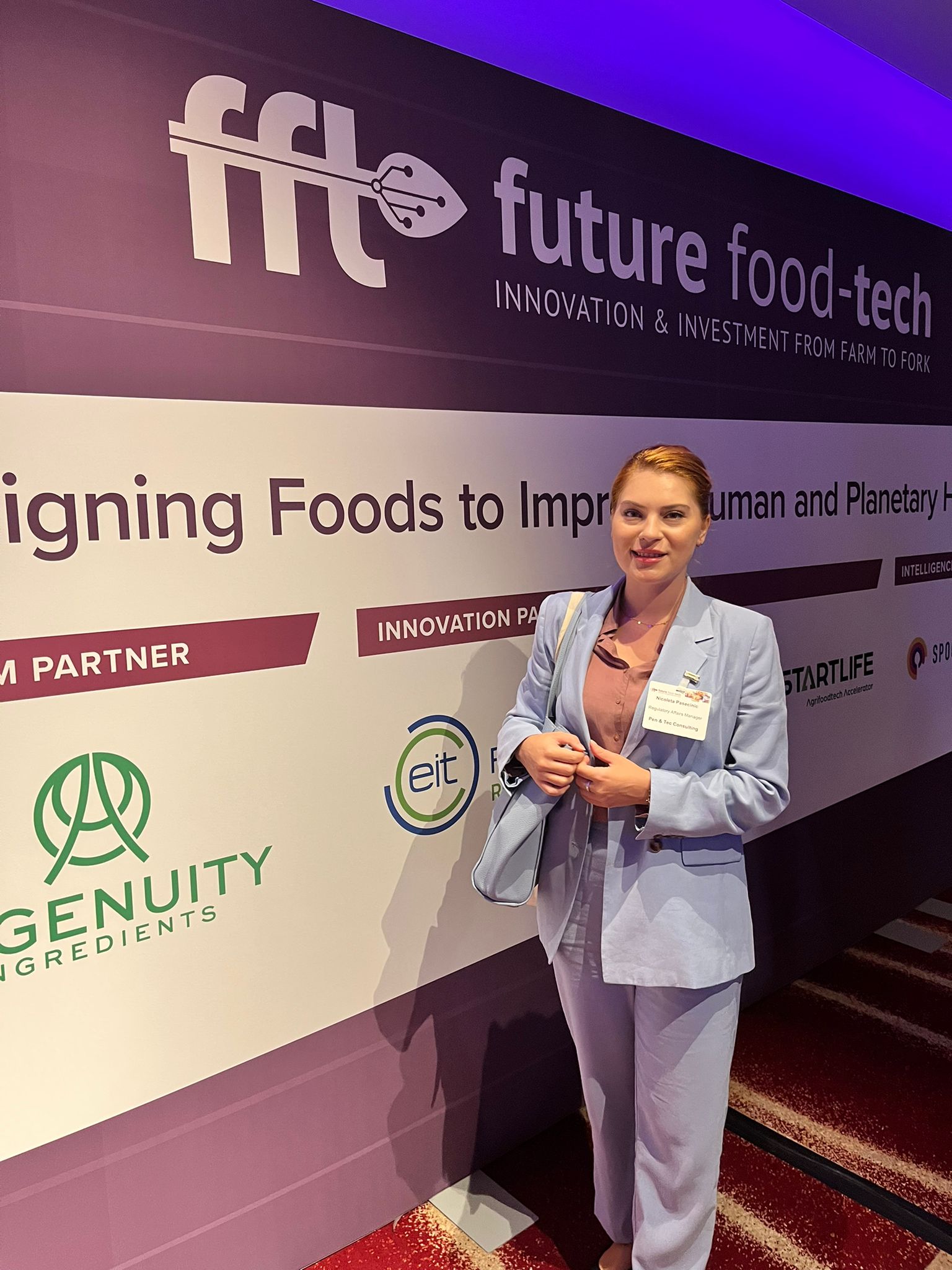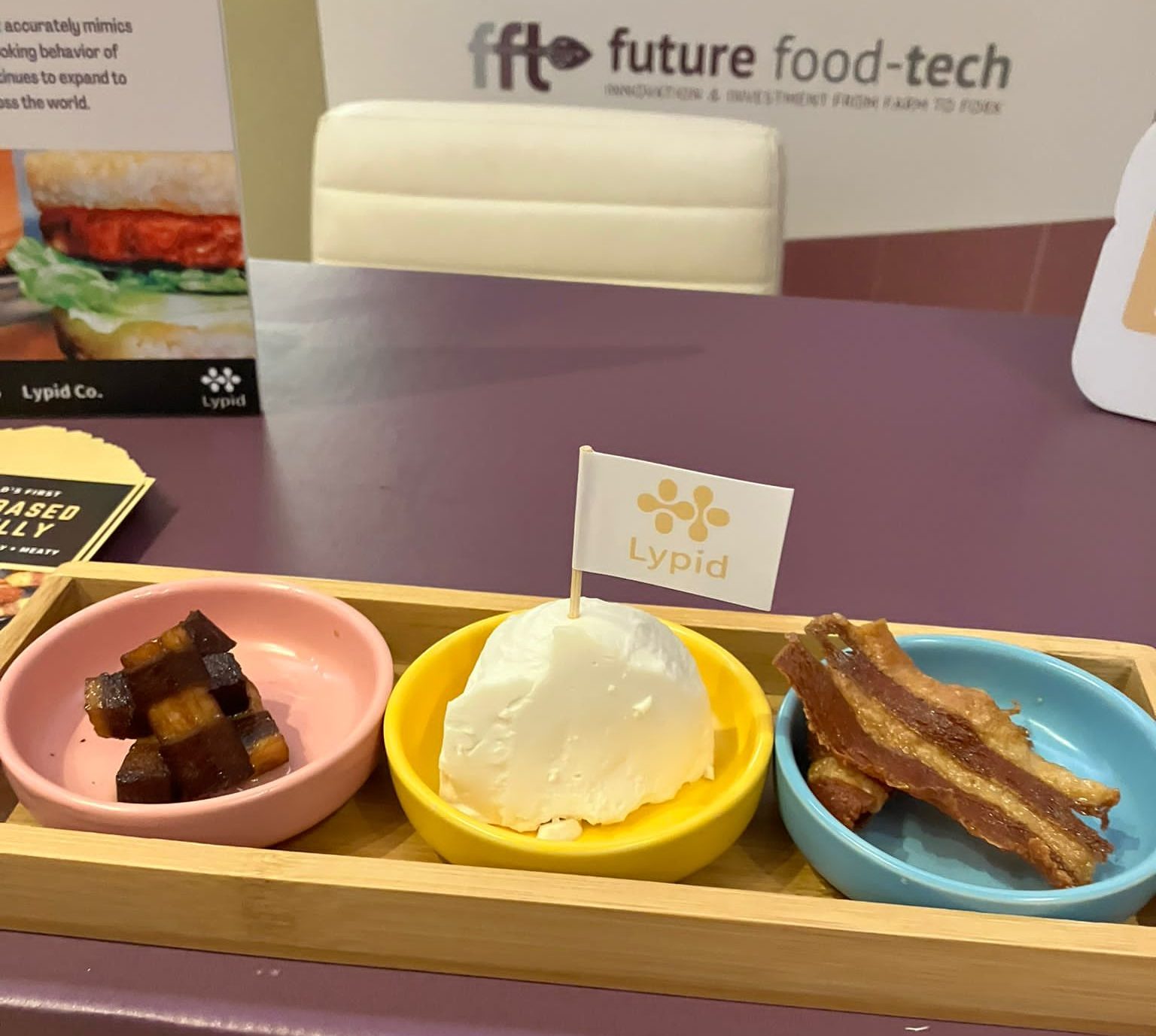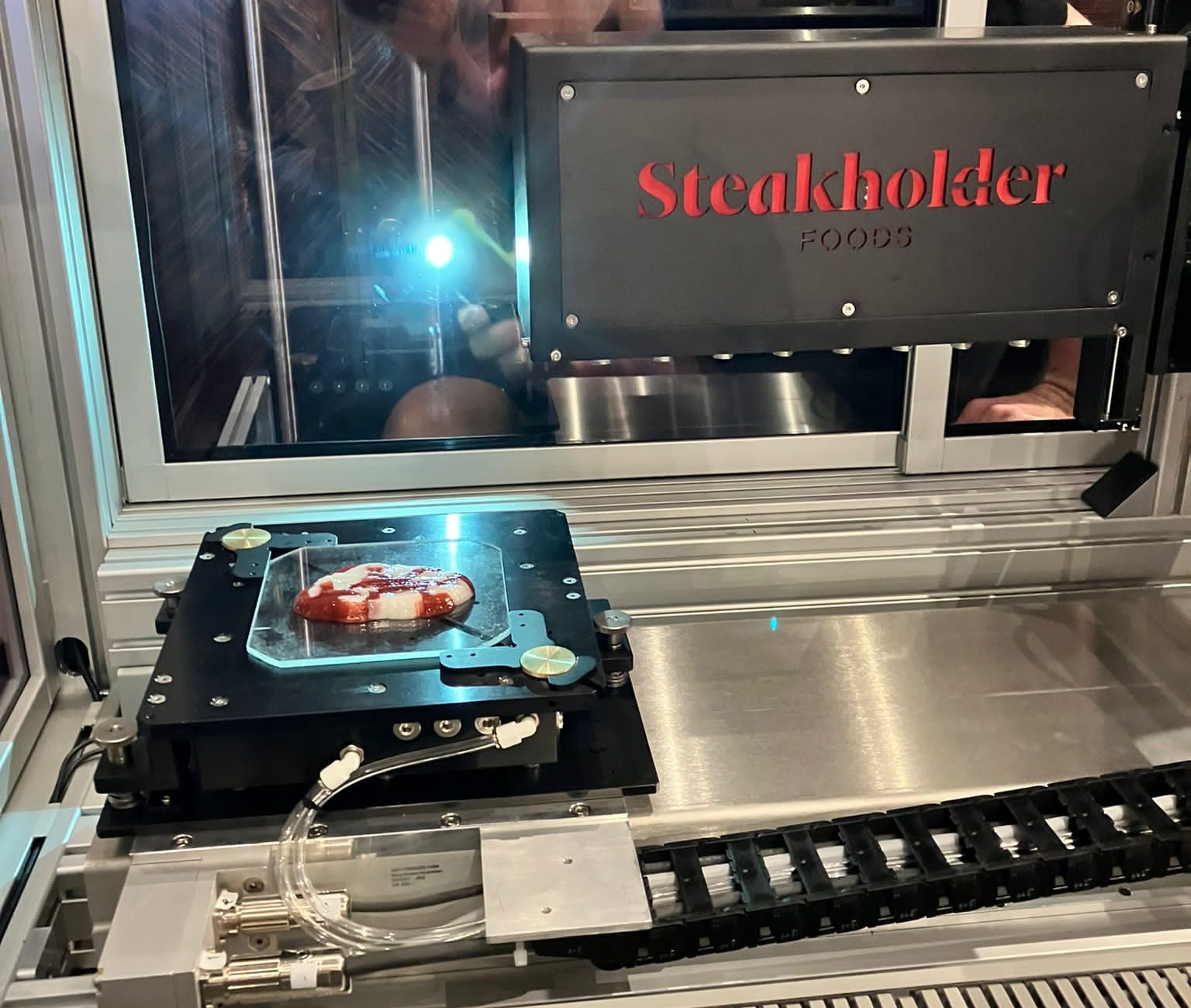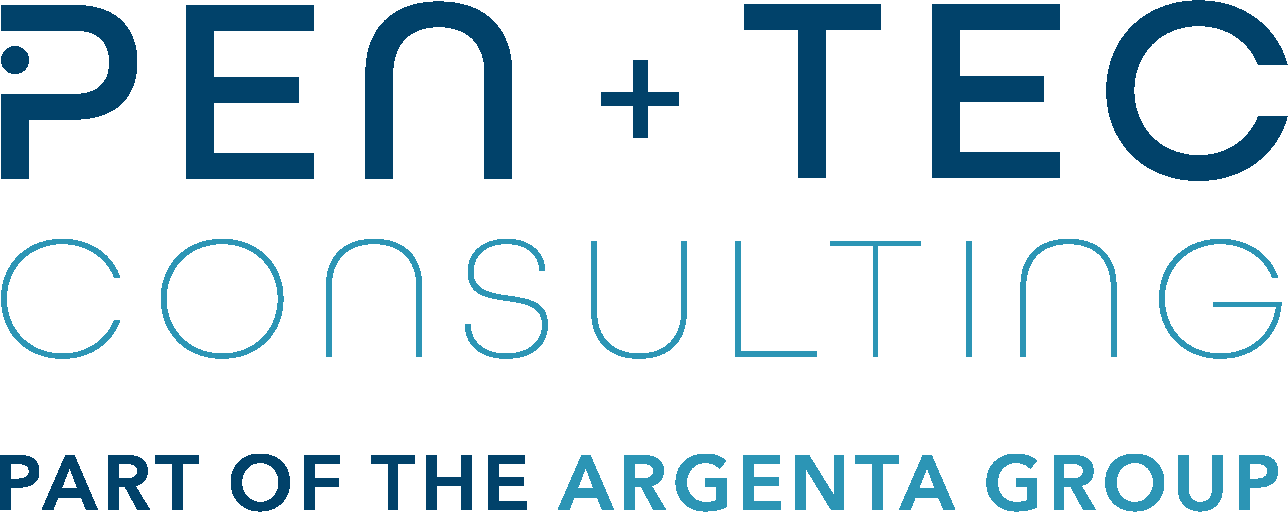The Future of Food – regulatory challenges the industry is facing
Posted 3 October, 2022
Nicoleta Pasecinic ANutr, Regulatory Affairs Manager at Pen & Tec Consulting, attended the Future Food Tech event that took place in London on 22-23 September.
 The prestigious event showcased some of the industry leaders in alternative proteins as well as novel foods. With attendees from over 45 countries, the summit provided an interesting insight into new technologies, start-ups as well as the challenges faced getting these products to market.
The prestigious event showcased some of the industry leaders in alternative proteins as well as novel foods. With attendees from over 45 countries, the summit provided an interesting insight into new technologies, start-ups as well as the challenges faced getting these products to market.
Nicoleta shared some of her key take-aways with us below about the regulatory challenges the industry is facing:
In the industry of precision fermentation & cultured agriculture, priority is given to regulatory approval in the US over any other market, because of their promise of faster timelines. The FDA have visited Supermeat’s premises in Israel, which show that they are interested in facilitating conversations with manufacturers. Some attendees agreed that Europe lacks a channel where the industry can talk transparently with the Authorities prior to submitting data packages. This slows down innovation considerably.
The cell-cultured start-ups have praised their experience working with the FDA, saying that they experience them as being open minded, constructive, efficient, and eager to provide sound advice when information is shared.
Moving over to the Asian market, there is good progress is being made by regulatory authorities in Singapore, which is likely due to the Singaporean government´s positive response to lobbying.
In the United Kingdom, the FSA oversees the risk assessment of these products, and they are open to receiving new dossiers. Their requirement is quality dossiers which would ensure that the assessments be completed in a timely manner.

The industry is facing many hurdles when planning for large-scale manufacturing. Regulatory, morphology of cells, challenges with equipment, lowering production costs and increasing efficiency of production. On the topic of scaling up, MycoTechnology’s CEO, Alan Hahn, has outlined that based on his experience, it took 1.5 year to construct a scaled-up mycelia fermenter.
Success drivers would be to have a vision before a planning, so that you can take more risks and find solutions along the way as the process develops. A potential challenge is convincing investors that the product can be successfully marketed on a large scale, whilst keeping quality of the finished product front of mind.
Manufacturers have been urged to back sustainability claims up with sound data to avoid “greenwashing” of these novel foods.

On the matter of natural, Nicoleta had the following to say: “It is less important what the industry thinks. The strategy is to have transparency on the source of the product and let the consumers decide what is their own definition of ‘natural’.”
Trends within the food ingredient and solutions sector observed to be the following:
- Replacement of coconut oil with cultivated precision fermentation fat, which can be customised based on the needs of the product.
- A move to manufacture cultivated human breast milk, which will be in the same form as powdered infant formula, but biologically identical to human breast milk.
- Even after much of the pandemic has calmed down and lockdowns are not front of mind anymore, food delivery appears to remain high, with a substantial increase seen in the request for Vegan meals on apps such as Uber eats.
- Non-pasteurised fermented vegetables that have a stable shelf-life: however, the rules regarding the labelling would need to be closely considered.
The conclusion was made that Singapore, Israel and the US are biggest to lead the change in conversations on the regulatory pathways for the entry of alternative proteins into their markets. The conference remains a key event on the calendar of the food industry, to facilitate conversations around novel foods, industry trends and to showcase interesting technologies in the pipeline for food manufacturing companies.
Pen & Tec Consulting have recently become part of Argenta Global. We remain committed to offer our customers the best possible consulting services to ensure that their products obtain regulatory approval.
Together with innovative companies such as the start-ups mentioned above, we aim to improve the global food industry one dossier at a time.
Don’t hesitate to contact us if you need any support facing the regulatory hurdles in bringing new food products to market .
